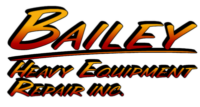Buying the Best Utility Vehicles for Your Business
Utility vehicles are a key tool in many industries and a common part of daily work activity. When you need new vehicles, there are many options to consider before purchasing a utility vehicle. What are some things to think about before you buy a utility vehicle? Ensure that the equipment you purchase fits your needs and is suitable for the industry you work in. Here are four factors to keep in mind.
1. The Environment You Work In
Utility vehicles have an assortment of uses, and depending on the nature of your work, the environment can vary. Environmental considerations can include the need for street legal driving, will you need off-road capacities, turning radius requirements, overall wear, accessory compatibility, and general use needs. You want your vehicles to be able to perform in the conditions you regularly encounter.
2. Drivetrain
Utility vehicles, like automobiles, have different drivetrain options to fit specific needs. In general, two-wheel and four-wheel drivetrains are the most common options. If your vehicles are mostly being used on smooth, even surfaces, two-wheel drive vehicles will likely suit your needs. However, if your business tasks involve off-roading, mud, bad weather, and generally hostile conditions, four-wheel-drive vehicles are more practical.
3. Fuel Type
The type of fuel your utility vehicles take is also an important consideration. Options include traditional gasoline, diesel, and electric options in some situations. Traditional gas utility vehicles run well, are quiet, tend to cost less than other options, and have good acceleration. The downside is they can require more maintenance and may offer less power than a diesel model. Diesel utility vehicles last a long time and offer high levels of performance. A downside is diesel utility vehicles can be louder and cost more upfront. Finally, electrical utility vehicles offer clean performance and less engine maintenance but are a newer technology and are not always a suitable solution.
4. Power and Performance
For utility vehicles, you have to keep your usage needs in mind. Factors to consider include towing power, cargo space, seating space, and payload capacity. Your utility vehicles need to offer the level of performance you need to do common daily business tasks. A vehicle that is too weak will result in more trips and work while an overpowered utility vehicle may be unneeded for your common tasks and a waste of resources and capital.
Final Thoughts
For every job, you need the proper tools. Your utility vehicles are as important as the tools found in your toolbox. By carefully researching your business needs, what tasks you need to perform, and vehicle specifics (fuel type and drivetrain), you can ensure your utility vehicles are effective and cost-efficient.
